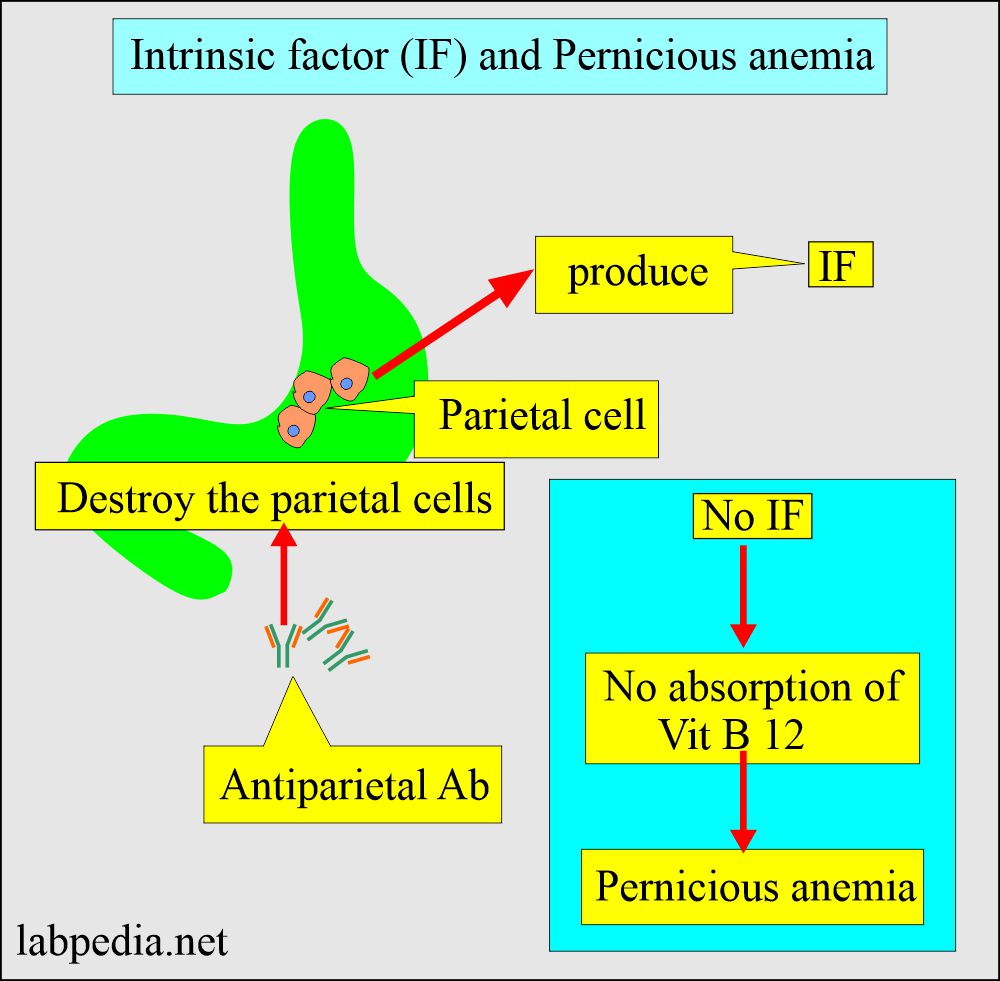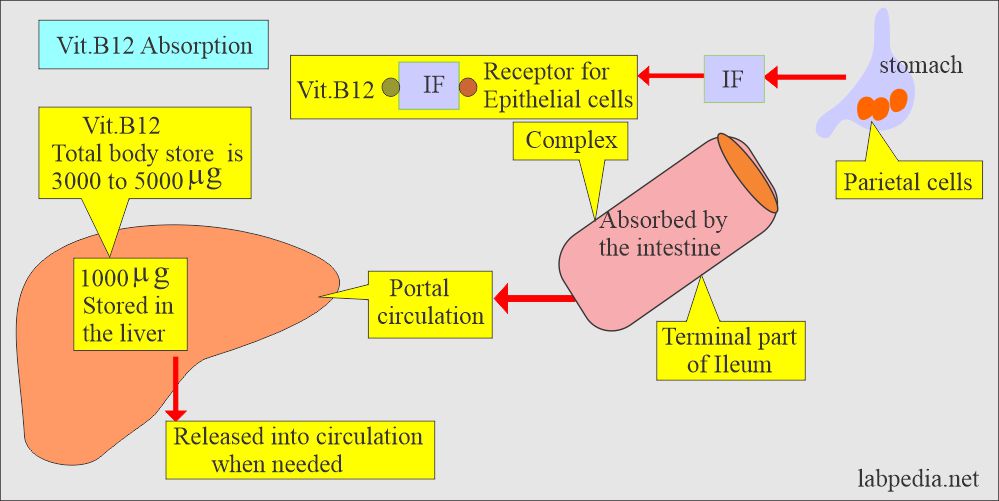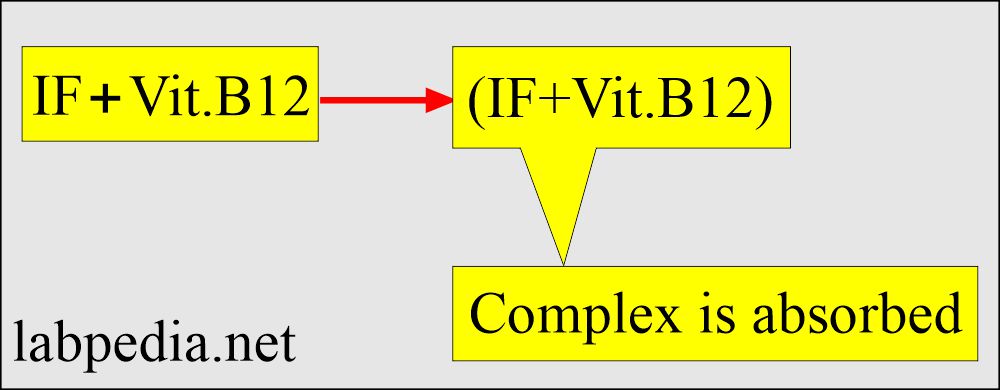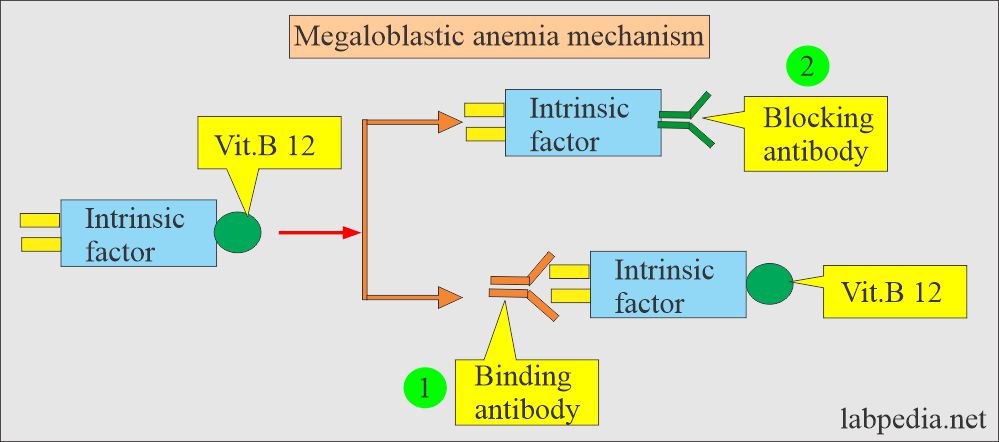Intrinsic factor Antibody (IF Ab)
Intrinsic factor Antibody (IF Ab)
Sample for Intrinsic factor Antibody (IF Ab)
- The serum the patient needed.
- This test can also be done on the plasma.
- The sample is stable for 4 hours at room temp.
- By refrigerating, the sample is stable for 3 days.
Purpose of the test (Indication) for Intrinsic factor Antibody (IF Ab)
- To diagnose pernicious anemia.
Precautions for Intrinsic factor Antibody
- Avoid injection of vit.B12 within 48 hours of testing.
Pathophysiology of Intrinsic factor Antibody
- Megaloblastic anemia is due to a deficiency of vit.B12, which is the major cause.
- Intrinsic factor is secreted in the stomach, which is needed for absorption of the vit. B12.
- The intrinsic factor is the protein produced by the parietal cells.
- The activation of the immune system produces antibodies against the intrinsic factor.
Mechanism of Pernicious anemia:
- In Megaloblastic anemia, IF is decreased or absent.
- This is one of the autoimmune diseases.
- IF Ab is found in a high percentage of children with juvenile pernicious anemia.
- IF Ab is 50% to 75% positive in these patients.
- IF Ab is of two types :
- Type 1 blocking Ab, which is more common, blocks the binding of vit. B12 to IF. It is found in the serum of pernicious anemia cases around 40% to 50%.
- Type II binding antibody binds with the site on the intrinsic factor and is away from the vit. B12 site. These are found in 40% of the pernicious anemia cases.
- The second antibody is less common, affecting the binding of IF in the ileum.
- Positive IF Ab is confirmatory and is the cause of the disease.
- Negative IF Ab does not rule out megaloblastic anemia because 50% of the patient does not show this antibody.
- One can supplement IF Ab with an anti-parietal antibody test to diagnose Pernicious anemia.
- Pernicious anemia rarely needs the vit.B12 absorption test called the Schilling test.
- Testing the intrinsic factor antibody and the anti-parietal antibodies is easier, quick, and more accurate.
Normal value of Intrinsic factor Antibody (IF Ab)
- Intrinsic factor antibody = Negative.
Positive test for Intrinsic factor Antibody (IF Ab)
- Increased IF Ab is seen in a patient with pernicious anemia.
- The IF antibodies are present in 3% to 6% of hyperthyroidism and insulin-dependent diabetes.
Questions and answers:
Question 1: What is the mechanism of antibody for pernicious anemia.
Question 2: What is the mechanism of pernicious anemia.




